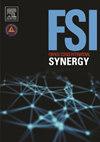《欧洲人权公约》第8条规定的调查法医遗传谱系的合法性
Q1 Social Sciences
引用次数: 0
摘要
调查法医基因谱系(iFGG)在2018年美国成功解决了金州杀手案,在2020年瑞典成功解决了Linköping双重谋杀案。然而,由于担心其合法性,瑞典暂时停止了对iFGG的进一步使用。本文以欧洲人权法院(European Court of Human Rights, ECtHR)的四项隐私检验:初步干涉检验、合法性检验、合法目的检验和比例检验,来评估iFGG的合法性。根据《欧洲人权公约》(ECHR)第8条,使用iFGG是对个人尊重私生活权利的干涉。其合法性要求制定一项允许iFGG使用的法律或修改现有法律,以允许执法部门使用iFGG。它的合法目的——通过犯罪现场的DNA数据来识别罪犯——完全符合《欧洲人权公约》第8条第2款。其使用的相称性在很大程度上取决于在支持ifgg的法律中提供适当的保障措施,以保护遗传数据隐私。虽然iFGG是一个帮助解决悬案的强大工具,但它必须站在坚实的法律基础上,在尊重隐私权的同时允许使用它。它应该能够经得起未来在欧洲人权法院面前的任何法律挑战。本条所确定的保障措施,如果纳入一项支持国际金融集团的法律,希望能够防止这种法律挑战。本文章由计算机程序翻译,如有差异,请以英文原文为准。
Legitimacy of investigative forensic genetic genealogy under Art. 8 ECHR
Investigative forensic genetic genealogy (iFGG) was successfully used in the United States to solve the Golden State Killer case in 2018 and in Sweden to solve the Linköping double-murder case in 2020. However, further use of iFGG in Sweden was temporarily suspended due to concerns about its legitimacy. This article evaluates the legitimacy of iFGG within what we name, the European Court of Human Rights' (ECtHR) four-fold privacy test: the preliminary interference test, the lawfulness test, the legitimate aim test, and the proportionality test. The use of iFGG is an interference with an individual's right to respect for private life under Article 8 of the European Convention on Human Rights (ECHR). Its lawfulness requires the creation of an iFGG-enabling law or amendment of an existing law to allow iFGG use by law enforcement. Its legitimate aim—criminal identification through data derived from DNA deposited at crime scenes—falls squarely under Article 8 § 2 ECHR. The proportionality of its use largely depends on the provision of appropriate safeguards in an iFGG-enabling law that would protect genetic data privacy. Although iFGG is a powerful tool to help solve cold cases, it has to stand on a solid legal ground that allows its use while respecting the right to privacy. It should be able to withstand any legal challenge before the ECtHR in the future. The safeguards identified in this article, if incorporated in an iFGG-enabling law, hope to prevent such legal challenge.
求助全文
通过发布文献求助,成功后即可免费获取论文全文。
去求助
来源期刊

Forensic Science International: Synergy
Social Sciences-Law
CiteScore
4.90
自引率
0.00%
发文量
75
审稿时长
90 days
 求助内容:
求助内容: 应助结果提醒方式:
应助结果提醒方式:


